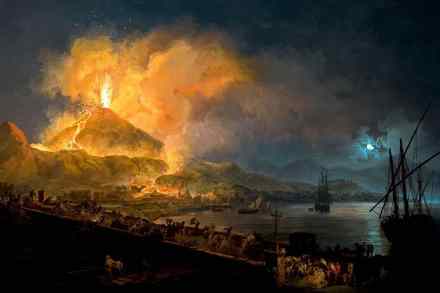The endless fascination of volcanoes
Volcanoes, volcanoes, volcanoes. You wait years for a good book or a film about volcanoes to come along and then they blow up all at once. In 2022, Sara Dosa’s incredible, unmissable – incroyable! incontournable! – documentary about the eccentric French filmmakers and volcanologists Katia and Maurice Krafft, Fire of Love, was nominated for an Oscar. It should have won. Then, last year, volcanology’s own Brian Cox, Clive Oppenheimer – professor of volcanology at the University of Cambridge and Werner Herzog’s companion and guide in his documentary film about volcanoes, Into the Inferno (2016) – published Mountains of Fire: The Secret Lives of Volcanoes. Now erupting on to the scene



